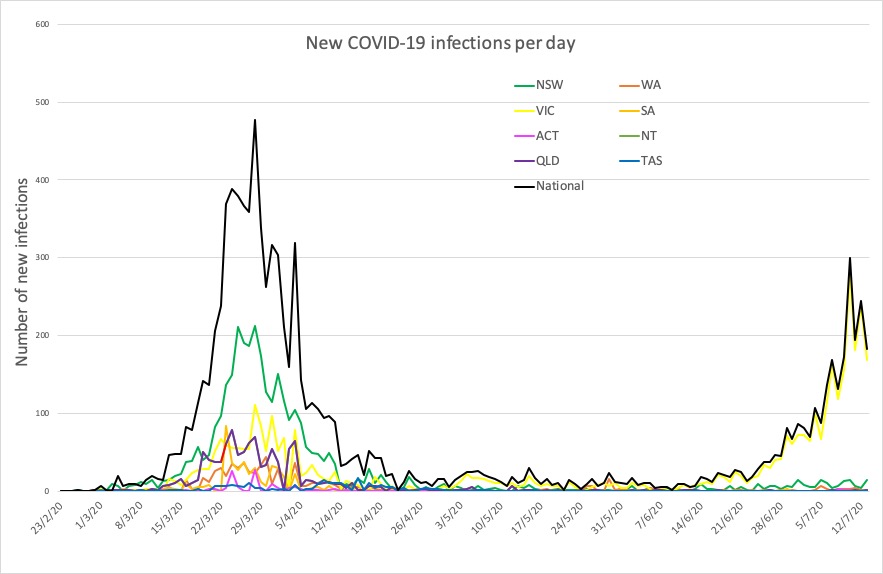A study has estimated that the COVID-19 pandemic has led to the single biggest decline in anthropogenic greenhouse gas emissions in human history.
Welcome to The Medical Republic‘s COVID Catch-Up.
It’s the day’s COVID-19 news into one convenient post. Got any tips, comments or feedback? Email me at bianca@biancanogrady.com.
14 July
- Anthropogenic greenhouse gas emissions show biggest drop in human history during pandemic.
- Federal Health Minister Greg Hunt demonstrates novel face-mask-donning technique.
- NSW imposes new restrictions on large venues to control outbreak as Victorian numbers surge.
- A bit of good news: a study has estimated that the COVID-19 pandemic has led to the single biggest decline in anthropogenic greenhouse gas emissions in human history, albeit at the cost of a 4.2% drop in GDP.
Writing in PLOS ONE, researchers reported the results of their macro-economic modelling of the impacts of the pandemic, which found that global consumption was down by around US$3.8 trillion, which was in turn associated with the loss of 147 million full-time equivalent jobs. Some sectors have been hit harder than others: global revenues of the air transport industry are predicted to drop more than 44% below 2019 levels.
But the silver lining is that global greenhouse gas emissions have declined by 4.6% – bigger than the drop seen during the global financial crisis of 2009 – and air pollutant levels have declined by 2.9%. - Putting on a face-mask is a simple as … well, if federal Health Minister Greg Hunt’s recent struggles are any indication (from the 40-second mark), it’s not always a straightforward procedure to don this essential piece of anti-COVID-19 wear.
- As the Crossroads Hotel cluster in Sydney’s south-west grows to 28 cases, NSW Premier Gladys Berejiklian has announced new restrictions on indoor venues, which limit group bookings to a maximum of 10 people, limit venues to a maximum of 300 people in total, and require all venues above a certain size to have a COVID-19 hygiene marshal, to monitor adherence to physical distancing. All venues are also required to register the details of every patron and to lodge a COVID safety plan with Services NSW.
In a press conference, the premier said the state was now on high alert because of its proximity to Victoria, and said that there was a risk that community transmission had already been happening for some time in NSW. The cluster associated with the hotel includes a child and a teenager who were close contacts of someone who visited the hotel.
Victoria recorded 177 new cases to 8pm Monday, but another 270 have already been recorded overnight. There are now 26 patients in intensive care, 21 of whom are critically ill on ventilators.
Around Australia to 9pm Monday, here are the latest confirmed COVID-19 infection figures:
National – 9980, with 108 deaths
ACT – 113
NSW – 3492
NT – 31
QLD – 1071
SA – 443
TAS – 228
VIC – 3967
WA – 635



